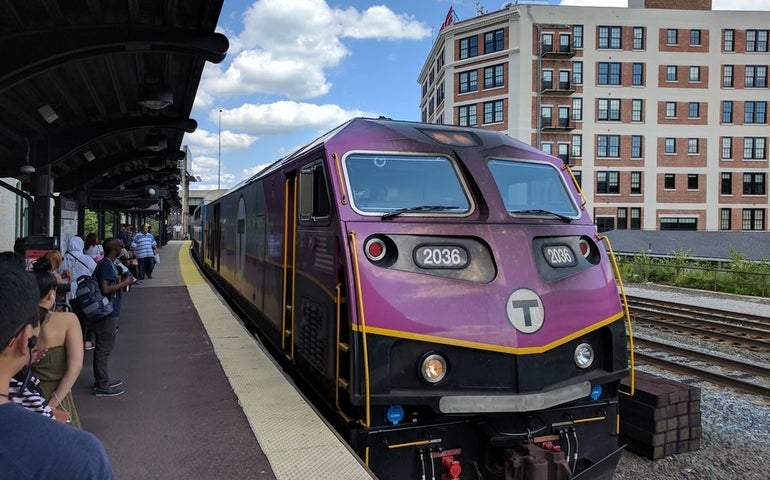Cities and towns that help fund the MBTA are concerned it will be “impossible” to restore pre-pandemic service levels and that the agency might need to hike fares given the growing shadow of a budget shortfall that officials so far have failed to address.
The MBTA Advisory Board, a group that represents municipalities that contribute financially to the transit agency and are served by it, highlighted several red flags in its review of the T’s latest budget proposals, including a sluggish hiring pace.
MBTA officials are weighing a $2.72 billion preliminary budget for fiscal year 2024 that would increase spending by nearly 7 percent and use $261 million in one-time funds to close a gap.
Even after MBTA budget-writers revised their fare projections downward in the draft budget proposal, the advisory board pondered whether the latest projection is “too optimistic” given that ridership has plateaued on the subways in particular.
“Overall ridership seems stuck at about 60% of pre-Covid levels,” the Advisory Board’s Operating Budget Oversight Committee wrote in a 21-page report. “The revenue model in the FY 2024 budget assumes overall ridership will increase by 9.8 percent. This seems aggressive. We would like to know the contingency plan if ridership does not reach this level.”
Ridership numbers are crucial to the T’s financial outlook. Before COVID-19 wiped out travel on public transit across the country, about 43 percent of the costs incurred by running MBTA passenger trips were covered by revenue from passenger fares, according to the advisory board. In fiscal 2024, the T projects that ratio will be only 18.7 percent, putting pressure on government to offer more subsidies or the agency to either slash costs or raise fares.
“Without a plan of action for this scenario, member communities fear that a return to pre-pandemic service levels will be impossible, and/or that a fare increase may become necessary,” the advisory board said. “Fare increases reduce ridership, and the MBTA’s mission must be to attract riders right now.”
Ongoing service problems are making it more difficult to attract riders. Slow zones associated with safety repairs have improved a bit in recent weeks, but still cover 21 percent of all MBTA subway tracks, according to data updated Wednesday. Red, Orange and Blue Line service cuts implemented last summer remain in place, and bus service cuts have remained persistent amid hiring struggles.
The advisory board pointed to last summer’s month-long Orange Line closure as an example of the headaches that continue to plague riders, calling it “a failed line shut-down.”
“The Orange Line did not operate for one month, and passengers were bused throughout Malden, Medford, Somerville, and Boston. At the time, communities were told that this surge would result in a better, more reliable Orange Line. However, at the time of writing this report, the Orange Line is operating with multiple slow-zones which force trains to proceed much slower than usual, and certainly slower than before the surge in August 2022,” the group wrote in a parallel report about the T’s capital investment plan. “Communities and the public deserve reassurances that future disruptions and shut downs will result in actual improvements for the long term.”
One mitigating financial factor also underlines another problem: the T’s workforce. The advisory board said unfilled positions will lower costs to a certain degree, but they also “imply less than desired levels of service.”
Gov. Maura Healey and the officials she installed to run the T have been touting the importance of building the T workforce, but the group of city and town watchdogs warned that progress so far is slow.
“My challenge right now is really one of workforce. I need to find a way to hire six, seven, eight hundred people right now,” Healey said Tuesday in an interview on WBUR. “… If we get more workforce in, we’re on that path to the safe and reliable T that the public should expect.”
At the end of March, the T had 6,496 active employees, which was 152 more than the same point last year, according to the advisory board.
“If this hiring trend continues, it would take the MBTA almost 8 years to meet its 2024 headcount target, and likely more as this calculation assumes no retirements, or other separations during that time,” the advisory board wrote.
The full advisory board adopted its reports about the MBTA’s operating budget and capital budget on Tuesday.
MBTA overseers plan to take a final vote on the operating budget on May 25, two weeks earlier than initially planned, according to the advisory board, which lamented the shortened timeframe for its review.

